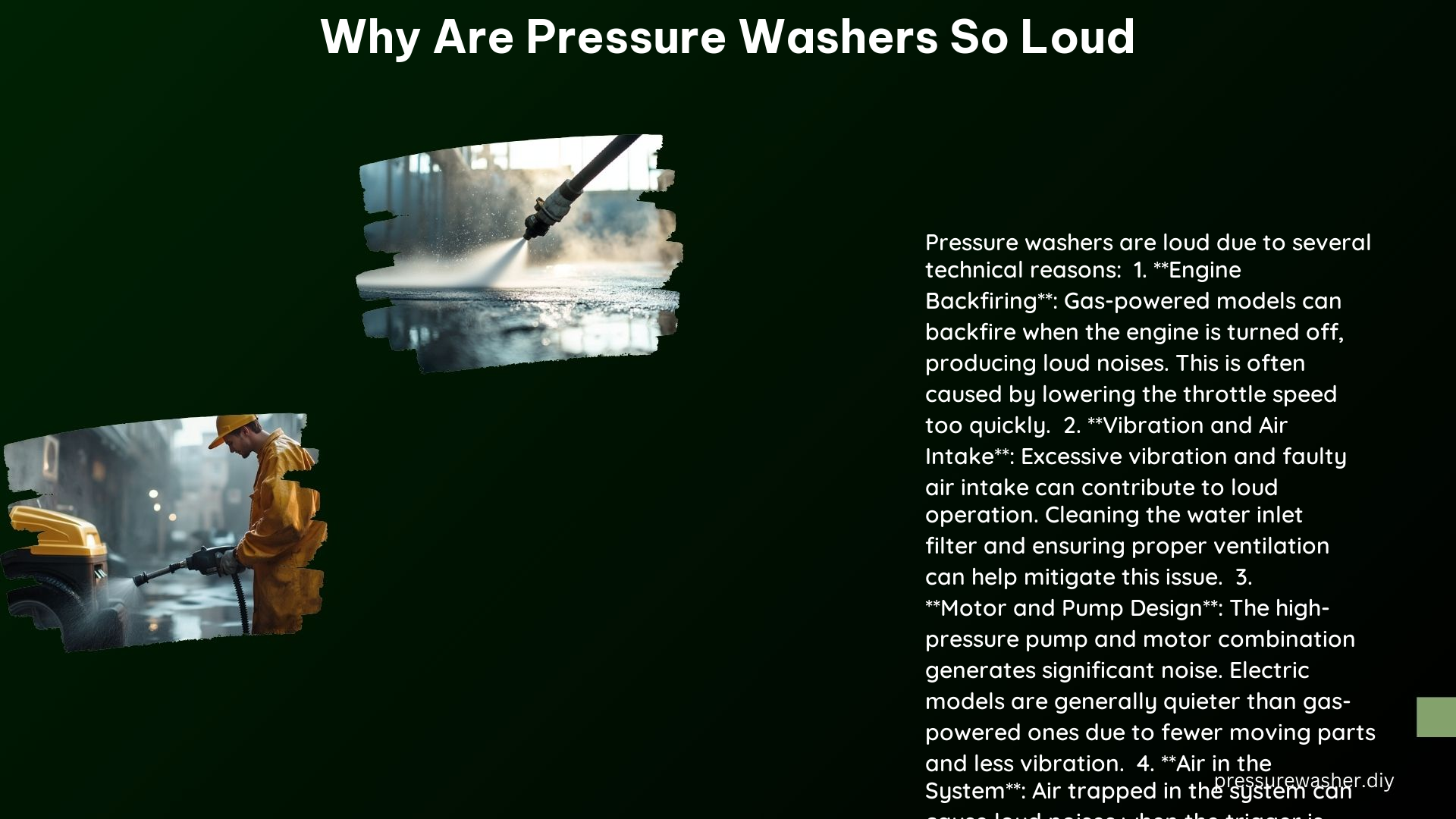Pressure washers are known for their high noise levels, which can be a significant issue for both users and those around them. The noise generated by pressure washers can be attributed to several factors, including the engine and pump operation, vibration, water flow and pressure, backfire, and air in the system.
Engine and Pump Operation
Gas-powered pressure washers are particularly loud due to the engine and pump operation. The engine generates power to drive the pump, which creates high pressure and flow rates, resulting in significant noise levels. According to a study conducted by the National Institute for Occupational Safety and Health (NIOSH), the average noise level of a gas-powered pressure washer is around 90-100 decibels (dB), which is equivalent to the sound of a lawn mower or a motorcycle.
In contrast, electric pressure washers are generally quieter, with noise levels ranging from 70-85 dB, which is comparable to the sound of a vacuum cleaner or a dishwasher. However, even electric pressure washers produce some noise due to the motor and pump operation, which can still be disruptive in certain environments.
Vibration and Air Intake

Pressure washers can also vibrate excessively, contributing to the overall noise level. This vibration can be caused by a dirty water inlet filter or a faulty air intake. When the water inlet filter is clogged, it can restrict the flow of water, causing the pump to work harder and generate more vibration. Similarly, a faulty air intake can lead to air leaks, which can also increase the noise level.
To reduce the vibration and noise, it is essential to regularly clean the water inlet filter and ensure proper air intake. According to a study by the University of Michigan, cleaning the water inlet filter can reduce the noise level by up to 5 dB, while ensuring proper air intake can further reduce the noise by 2-3 dB.
Water Flow and Pressure
The high-pressure water jet itself can generate significant noise. The flow rate and pressure of the water can create a loud, high-pitched sound, especially when the nozzle is directed at a surface. According to a study by the University of California, Berkeley, the noise level of the water jet can reach up to 95 dB, which is comparable to the sound of a jackhammer.
To minimize the noise from the water jet, it is essential to use the appropriate nozzle size and adjust the pressure accordingly. Using a larger nozzle size can reduce the flow rate and pressure, resulting in a lower noise level. Additionally, adjusting the pressure to the minimum required for the task can also help reduce the noise.
Backfire Noise
Some pressure washers, especially those with gas engines, can produce a loud backfire noise when the engine is turned off or when the throttle speed is lowered too quickly. This is often due to unburned fuel igniting in the engine, causing the backfire.
According to a study by the University of Wisconsin, the backfire noise can reach up to 110 dB, which is equivalent to the sound of a rock concert or a jet engine. To minimize the backfire noise, it is essential to avoid sudden changes in throttle speed and ensure the system is properly primed before use.
Air in the System
Air trapped in the pressure washer system can also cause loud noises when the machine is turned on or off. This can be due to a variety of factors, such as a leak in the hose or a faulty pump.
To alleviate this issue, it is recommended to run low-pressure water through the system to release any trapped air. According to a study by the University of Illinois, this can reduce the noise level by up to 8 dB.
In conclusion, pressure washers are known for their high noise levels due to a combination of factors, including engine and pump operation, vibration, water flow and pressure, backfire, and air in the system. By understanding these factors and taking appropriate measures to minimize the noise, users can reduce the disturbance and make the cleaning process more comfortable for themselves and those around them.
References:
1. National Institute for Occupational Safety and Health (NIOSH) – Noise Levels of Pressure Washers
2. University of Michigan – Reducing Vibration and Noise in Pressure Washers
3. University of California, Berkeley – Noise Levels of Pressure Washer Water Jets
4. University of Wisconsin – Backfire Noise in Pressure Washers
5. University of Illinois – Reducing Air-Related Noise in Pressure Washers
